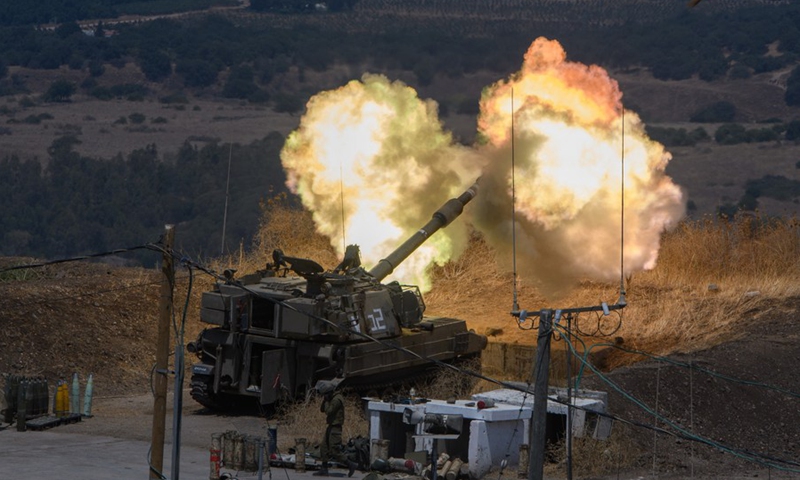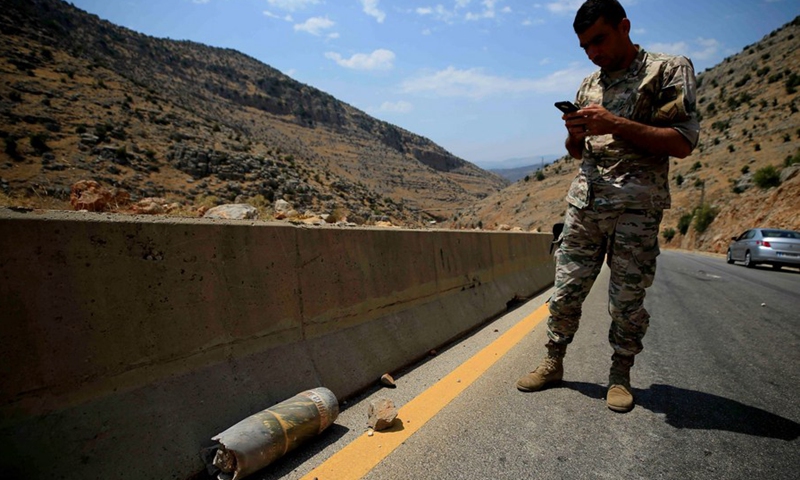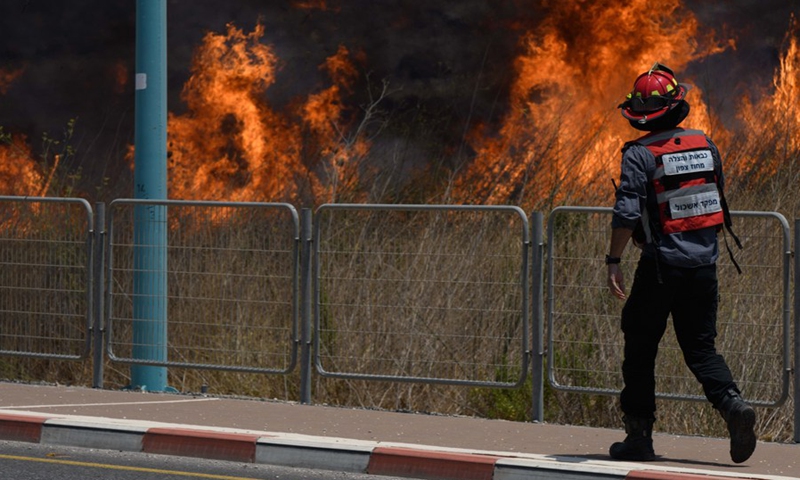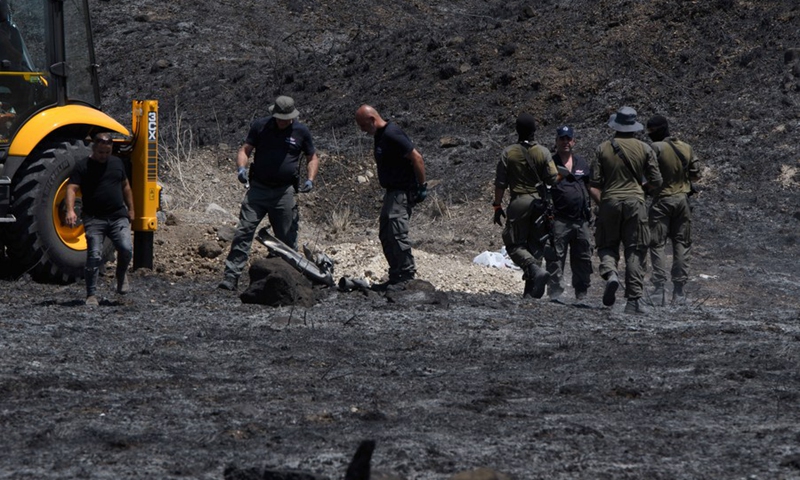
An Israeli artillery unit fires at targets in the Lebanese territory from the Israeli-occupied Golan Heights on Aug. 6, 2021.(Photo: Xinhua)

A Lebanese soldier examines the remains of an Israeli shell that fell on the road to the town of Shebaa, south Lebanon, on Aug. 6, 2021.(Photo: Xinhua)

A fire caused by rockets launched from Lebanon into Israel is seen raging near northern Israeli city of Kiryat Shmona, on Aug. 4, 2021.(Photo: Xinhua)

Israeli security members deal with the wreckage of a rocket launched from Lebanon into northern Israel, near the city of Kiryat Shmona, on Aug. 4, 2021.(Photo: Xinhua)
The recent exchange of rockets between Lebanon and Israel do not necessarily imply an imminent risk of war between the two countries, Lebanese analysts said.
Youssef Diab, political analyst at the Lebanese University, told Xinhua that the recent exchange of rockets aimed mainly at conveying a message from Hezbollah that "any attack by Israel or the United States against Iran or Iranian ships in the Gulf will face a retaliation by the Iran-backed Shiite party from southern Lebanon."
Hezbollah fired rockets last Friday against Israeli targets in the occupied Shebaa Farms in retaliation for Israeli airstrikes one day before in southern Lebanon.
Confrontations began on Aug. 4 with a rocket strike on Israel from Lebanon for which no group claimed responsibility. That attack, on which Hezbollah has not commented, drew retaliatory Israeli air strikes.
According to Diab, Hezbollah saw a necessity to retaliate to Israeli airstrikes after Israel blamed Iran "for an attack implemented on July 29 on an oil tanker operated by an Israeli-owned company in the coast of Oman in the Arabian Sea," while announcing that it is rallying global action against Iran to respond to the attack.
"Hezbollah aimed to tell Israel that Lebanon's front will be used for retaliation in the event of any attack by Israel or the U.S. against Iran," Diab said.
Hisham Jaber, a military analyst and retired army general, said that recent confrontations between Lebanon and Israel meant to be limited, noting that both parties attacked unpopulated and open ground areas.
"Lebanon and Israel are currently incapable of bearing the repercussions of a war which will be destructive for both countries," he said.
For his part, Mohammad Barakat, editor-in-chief of a global news website Asas Media, told Xinhua that tensions are expected to escalate on the Lebanese-Israeli borders as months of talks over Iranian nuclear deal failed to produce an agreement.
Barakat cited earlier remarks by Israeli Defense Minister Benny Gantz about Iran being 10 weeks away from acquiring weapons-grade materials necessary for a nuclear weapon, as indicative of a possible escalation in tensions between Israel and Iran.
"Hezbollah will continue to reinforce its loyalty to Iran by opening Lebanon's front if necessary," Barakat said.
As for Diab, he believes that any miscalculated future confrontations between Lebanon and Israel may escalate into war if they result in casualties.
Diab warned that any possible war will be destructive for Lebanon as hospitals are not sufficiently equipped to treat the injured given the shortage in medicines and equipment.
Meanwhile, Barakat said that any tensions on the border will threaten the lives of 5 million Lebanese people who are already suffering from the state's complete failure.
Lebanon has been witnessing multiple crises caused by the absence of an efficient government capable of implementing structural reforms to attract aid by the international community. Lebanon's crisis was further exacerbated by the Beirut port explosions on Aug. 4, 2020 which destroyed a big part of the city.
Recent confrontations between Lebanon and Israel sparked fears among the Lebanese about further escalations that may cause further damage on the economic, social, infrastructure and security fronts.
"Israel will not accept any casualties on its side," he said.
